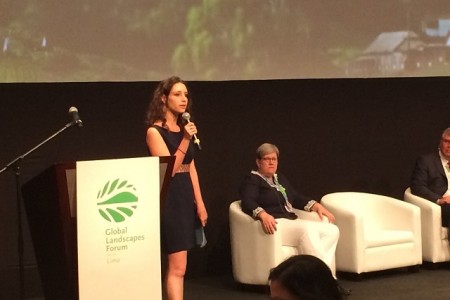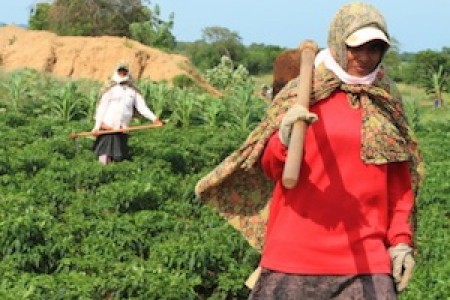The International Water Management Institute (IWMI), in conjunction with WLE, is hosting a session at the Royal Geographical Society (RGS) conference in London from August 31 until September 2, 2016. The title of the session is Migration, gender and agrarian change in the Global South.
Call for Papers
The session will bring together case study research on migration and rural change in the Global South to generate dialogue and debate on rural transformation in migrant sending regions and countries, to identify a research and policy agenda.
There are an estimated 214 million international labour migrants and 740 million internal labour migrants worldwide. The impact of migration on receiving countries and regions has received unprecedented public and policy interest in recent years. However, migration also has a far reaching impact on rural economies and the trajectory of change in agriculture within the Global South. Understanding the relationship between migration and agrarian change is a classic ‘nexus’ challenge. The out-migration of men and youth in particular, can result in transformations in gender relations in agriculture, changes in how natural resources are managed, new patterns of investment, and reconfigured power relations and geographies of inequality. However, the character of these agrarian transformations over time and place are mediated by larger scale processes such as climate change and regional or global political economy – the same processes which drive migration in the first place.
Research questions/issues to be addressed by prospective participants in panel include, but are not limited to:
- The impact of migration on gender relations – including the feminization of agriculture
- How migration is shaping patterns of investment on the land
- Migration and natural resource management
- The relationship between environmental change, gender and migration as adaptive strategy
- Migration and the aspirations of rural youth
- How migration is changing patterns of rural inequality within or between communities – a transformation or reproduction of social relations?
- The relationship between migrants and rural communities at home, including flows of knowledge, cash and other resources
- Overseas diasporas, and their relationship with agricultural home communities
Those who are interested in participating in this session should email Fraser Sugden (F.Sugden@cgiar.org) by Monday 15th February 2016.



